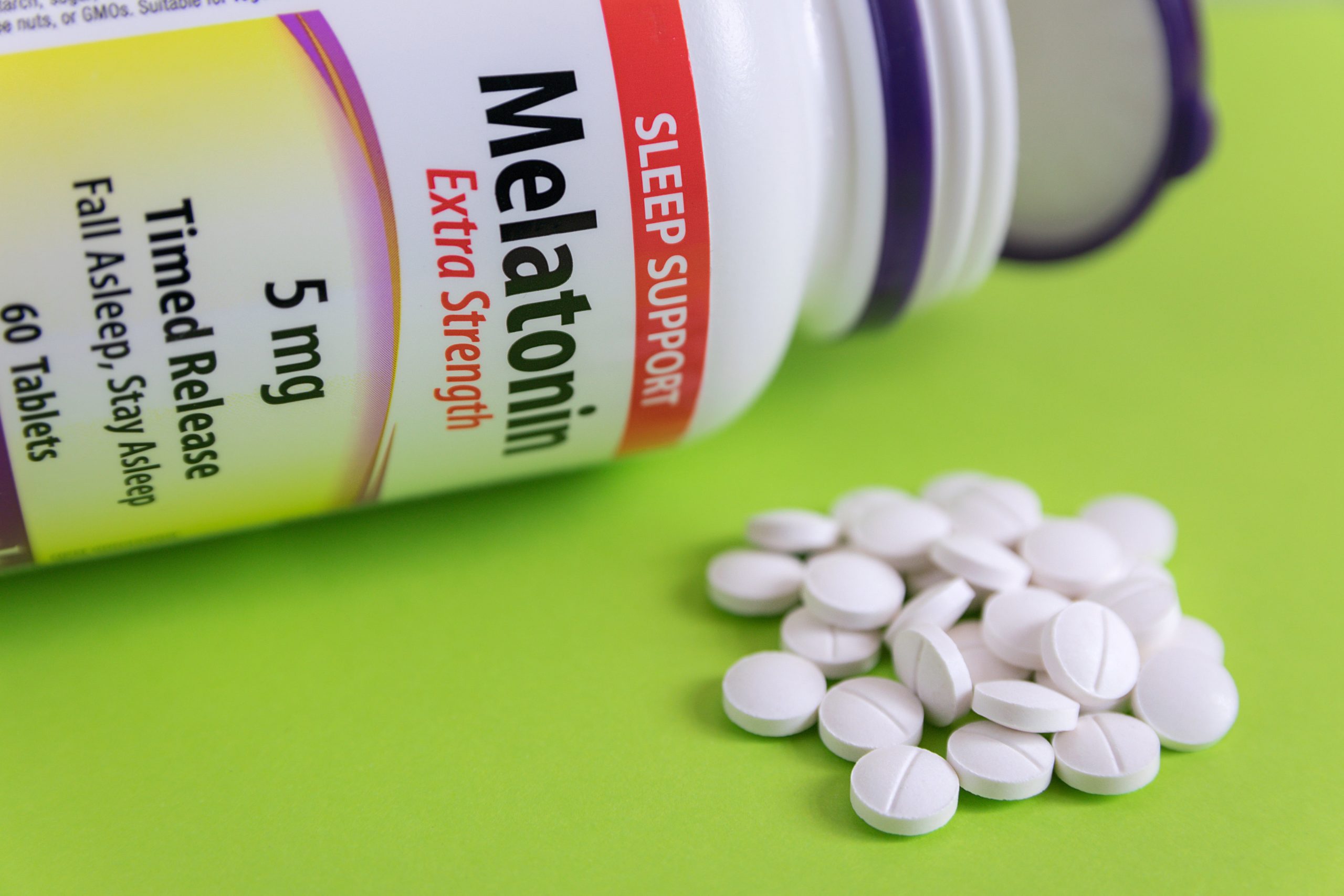Melatonin, a neurohormone secreted by the brain’s pineal glands, seems to be safe even when taken in high doses. However, there are no studies on its long-term side effects or its impacts on other body functions.
Melatonin is a neurohormone that the brain’s pineal glands secrete and is also available as a supplement. People who have problems with sleep, including those who take long to sleep or have limited sleep durations, usually take melatonin supplements to improve their sleep quality. People usually take 1 mg to 10 mg as the dosage for melatonin, although the ideal dosage has not been established. The supplement seems to be safe, even in cases where it’s taken in high doses like 10 mg to 100 mg. However, there are missing links, especially the effects melatonin can have on a person in the long term, how it affects other functions of the body, and how it might impact infants, adolescents, and nursing mothers, making experts have a reservation for its use by such sensitive individuals. Here is everything you need to know about melatonin.
Understanding melatonin
First things first, let’s understand what melatonin is. If you have ever heard about the ‘hormone of darkness or ‘sleep hormone,’ you’ve heard about melatonin. It is a type of hormone secreted by the brain, specifically the pineal glands. Consequently, it is called a neurohormone. Some people have sleep issues and supplement with hormone, meaning that this hormone is available as a supplement. In the USA, people can buy it over the counter. However, in Europe, Australia, and the associated regions, melatonin is considered a drug that’s only sold upon prescription (prescription only medication or POM).
Melatonin is wide-ranging in its effects
Melatonin is indeed a safe supplement, and its administration has not been associated with serious medical issues or side effects. However, experts have their reservations about melatonin because its effects are wide-ranging. Apart from acting as a sleep aid, it affects other aspects of health and quality of life, including sexual, cortisol release, immune, temperature, and blood pressure systems. As such, there is a need to examine its effects on the stated systems, especially in the long term.
Does supplementing with melatonin predispose people to serious side effects?
Melatonin boasts an outstandingly safe profile, which is why its use is growing in popularity. Although it is not as effective as other medications and aids for sleep, it does not have any recorded side effects. Several studies have been conducted to establish how melatonin compares with placebo for side effects, but none could be considered significant. Although some people complained about dizziness, headache, nausea, etc., the effects were experienced by participants from both groups. As such, they were not melatonin-specific. However, there are reservations about administering melatonin supplements to sensitive groups such as infants, adolescents, and breastfeeding mothers since most studies have not narrowed to this aspect, nor has melatonin been researched for its side effects on other functions other than sleep.
Some experts fear that supplementing with melatonin could interfere with the body’s natural secretion of melatonin
As mentioned at the outset, melatonin is a neurohormone secreted by the brain’s pineal glands. This means the body has a system that secretes it, but some people have issues sleeping and reach for it. As such, melatonin helps a person sleep faster, improves his sleep duration, and lowers body temperature to make sleep more possible. However, some scientists feel that using melatonin for a long time could interfere with the body’s natural system to secrete it. While this may make sense, short-term studies have not confirmed this, but there is a need to keep researching melatonin to fill these missing links. Generally, though, melatonin is touted as healthy and is one of the few supplements that do not have dependency effects. As such, quitting it will not trigger withdrawal syndrome. Again, studies that led to these conclusions were only short-term, necessitating the need to conduct similar studies for the same parameters but over longer durations.
Melatonin for children?
The Food and Drug Administration (FDA) has not examined melatonin for children nor evaluated its safety. Nonetheless, the supplement’s use is growing in popularity, even among children. Some countries don’t feel a pinch about this, but in Australia and Europe, melatonin is a prescription-only medication, primarily for adults. Even so, some areas of Europe, including Norway, administer this supplement to kids. While studies have not recorded any negative reception of melatonin in children, the latter is considered a sensitive group, which is why many experts hold back on administering it to children. Additionally, this growing group could also be affected by the wide-ranging effects of melatonin. As such, only further studies will help clear the air.
Melatonin might cause daytime sleeplessness in users
The other concern about melatonin is that it might cause daytime sleepiness, especially when administered during the day. Of course, this is not a side effect of this hormone since that’s what it is meant to do. Nonetheless, people with reduced melatonin clearance rates may view daytime sleepiness as a problem since they need to keep active during the day, yet the supplement will still be acting. Reduced clearance of a certain drug or supplement denotes the period the system takes to remove it from the body. While young people, especially healthy ones, may not have adverse effects with reduced melatonin clearance rates, it might be challenging for the older fellows who might try unsuccessfully to hold up and stay awake.
Naturally boosting melatonin levels
Fortunately, you need not take melatonin supplements if you don’t have serious sleep issues because you could do a few things to boost it naturally. First things, avoid watching TV or using electronic gadgets as you near sleeping. Secondly, dim your lights since reduced light at night is linked to increased melatonin production. Third, expose yourself to the bright morning lights. These should boost your melatonin levels without necessarily taking melatonin supplements.
Conclusion
Melatonin is a hormone produced by the brain but is also available as supplements. Although it is generally safe for use, experts are concerned about its wide-ranging and long-term effects. If you have sleep issues, you might benefit from using it, but you could also boost the levels naturally by dimming lights at night and exposing yourself to the bright morning light.
- Bell Peppers 101: Nutrition Facts and Health Benefits - April 19, 2024
- Products That Assist with Stress Relief - September 21, 2023
- TRÈFLE – THE ROAD TO THE 15TH - July 29, 2023









